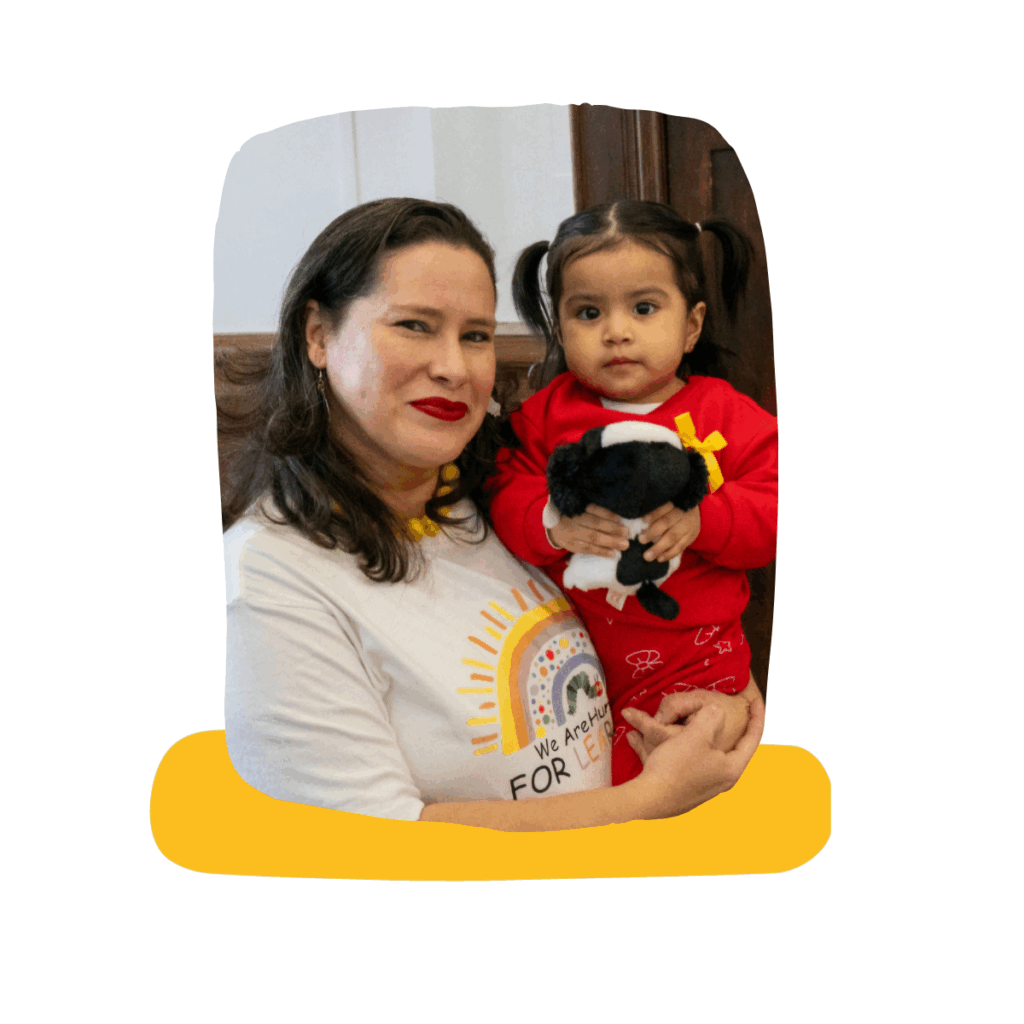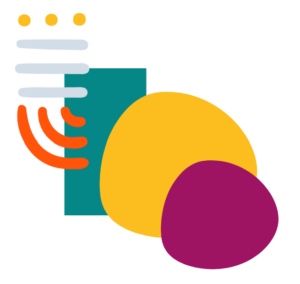
By Nurture Connection
Nurture Connection is proud to honor Hispanic Heritage Month (September 15 – October 15, 2025). This is an excerpt from reflections from Claudia Aristy, a Nurture Connection Family Network Collaborative Parent Leader, about her experience promoting Early Relational Health and supporting the health and well-being of children and families in her Spanish-speaking community.
For 25 years, Claudia has served a diverse group of families from all over the world through her work at Bellevue Hospital in New York City, one of the oldest public hospitals in the world. The vast majority of the families she sees, especially in pediatrics, are Spanish-speaking much like hers. Many are new moms and migrants who come to her clinic for support and guidance.
Can you tell us about the families you serve?
For the families that we serve here, considering everything that is happening now and in the political climate that we are living in, there’s a lot of stress, a lot of trauma, a lot of uncertainty. Parents are afraid of taking their children to school, not knowing if there’s gonna be a raid in the community, or if they could get deported. And on top of everything else, all the demands of being a parent.
Despite these challenges, there is still this sense of beautiful connection that parents are sharing with their children — while they’re experiencing all of this, they want to be able to try to buffer it for their kids.
To hear families talking about such personal matters is an honor — that they trust us and the relationship that we have been able to develop. And it’s something that we don’t take for granted [as FNC Parent Leaders]. We want to be able to respect and honor that trust as much as we can.
How are the families you work with understanding and practicing Early Relational Health (ERH)?
Having this understanding of the concept of ERH has really helped the moms I work with connect with their children at a deeper level and pay more attention to the time that they’re spending with their little ones. Whether it’s talking, playing, singing, reading, going out to the park — it’s really changing the way their children feel. A lot of the moms started talking a lot about an emphasis on paying attention to their children’s feelings: naming feelings, honoring feelings, respecting differences between their children. And that’s something that I had not heard before in the community. Or them talking about the difference between the way they were raised and the way they’re raising their children now. So in a way, ERH has a healing property. They’re healing their inner child with the activities that they’re doing with their kids, the way that they’re choosing to connect with their little ones.
I always tell my moms, You are becoming the champions for this (ERH) work in your communities by spreading the word and showing, by example, the way you relate with your children, other family members, and the people in your community. Parent-to-parent messaging is powerful, because it’s different when you hear from a peer, another mom who knows exactly what you have gone through. That’s how we can really make the waves go above and beyond.
What message would you like to share with families who want to build stronger bonds with their babies and toddlers?
Your first hug to your baby is through your words. Through your voice, you can transmit so many different feelings — love, safety, a sense of trust. I can trust the world because my mom is here, my dad is here taking care of me, even before I’m born. And that being born in this world, knowing that you’re loved and cared for, is a big difference right there.
Children learn better within the context of love. And there’s no better place to do that than in the arms of loving caregivers. So that when you are holding the baby in your arms and you are telling the baby a story or singing a song, that’s creating a bond between you and your baby. And we encourage our families to do it in their language and to use the songs that are traditional from their country as a way of keeping their culture and traditions alive.
And that is not only the language — it’s the music, it’s the traditions, it’s the celebrations, the food. I tell families, as you’re cooking, tell your children the ingredients you’re using … say, I’m cooking a recipe I learned from your grandma, and this is very traditional. Let’s celebrate the culture, let’s keep it alive in as many ways as we can so that those children grow up knowing where their parents came from. That is something that we should all treasure.

In Her Own Words: Hear more from Claudia about her work with Reach Out and Read at this link.
Read More: Nurturing Parent Mental Health Through ERH